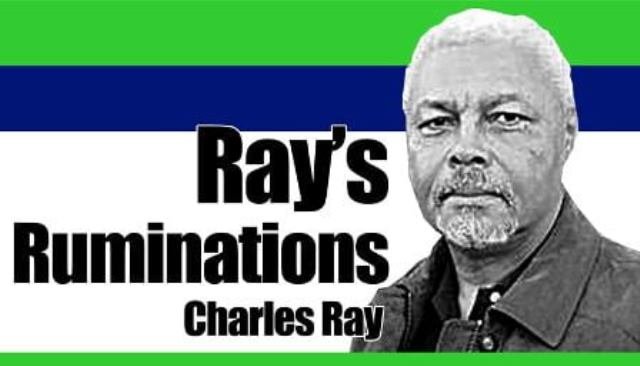
As the battle against efforts to increase diversity, equity, and inclusion (DEI) in American institutions continues to be waged in some political and ideological quarters, disinformation campaigns continue to distort the true meaning and origins of DEI.
You have some who are even going so far as to say that DEI is discriminatory and that is the reason they oppose it. I am an open-minded person who is willing to listen to and respect most points of view, even those I disagree with, but this is one bit of distortion that I simply must take on.
First, in order to put my remarks into fuller perspective, I have to say that, in my honest opinion, the people opposing DEI either are ignorant of the origins and evolution of these programs or they are willfully ignoring and distorting them.
In the first instance, these programs started out as Equal Opportunity (EO) programs to undo the decades (even centuries) of discrimination against people of color and women in education and the workplace, and over time, as it was recognition that there were many unfairly disadvantaged groups, based on disability, sexual orientation, religion, etc.) the concept was broadened to DEI to bring it more in line with efforts to build the society that the Founding Fathers actually envisioned over two hundred years ago.
Why did we need EO? Well, because certain groups were being excluded from participation in the life of the country, or being allowed to partake of its benefits. In addition, their contributions were being ignored and written out of history.
For example, when the famous Kentucky Derby horse race was held on May 17, 1875, the winners, Oliver Lewis, a jockey, and Ansel Wiliams, a trainer, had both been born enslaved. Twenty-five years later, their accomplishment, along with the accomplishments of many other African Americans, were all but erased from history as discrimination and Jim Crow engulfed the South (and much of the rest of the country)). I don’t have to dip into history to illustrate this either. I can tell my own story.
In 1962, when I graduated from high school, I was already an fairly talented artist, had written articles for my hometown newspaper covering affairs in the African American community for four years, and was the winner of a national short story writing contest. With my new high school diploma (from a rigidly segregated school system) and a portfolio of art and articles. I went off to Houston, the largest city in Texas, to see what I could find. What I found was employment agencies who informed me that they ‘didn’t have jobs like that for colored people,’ but they did have long lists of unskilled labor jobs for which I could be hired. I was having none of that, and at the tender age of 17, decided that the state of Texas and I needed to separate, so I enlisted in the U.S. Army.
Now, the army had its own problems with discrimination, but it has to be given credit for trying. The qualification and skill tests they administered were open to all and were graded on performance rather than pigmentation. So, for 20 years, I did many things in the army that were not available to me in civilian society—albeit having to occasionally contend with people questioning my right to be there. After the army, in 1982, I became a diplomat, working with the U.S. Department of State, whose function it is to manage relations with countries around the world.
One would think there would be none of this nonsense there, but one would be wrong. In 1982, the State Department was just beginning to try and reverse over half a century of discrimination against women, people of color, and many other so-called minority groups, since the founding of the career diplomatic service in 1924. Before 1924 it had been a completely spoils based service open primarily to the sons of wealthy Ivy League white families. Still, I managed to do things and climb the ladder of success despite some barriers.
Opening the door to all to allow everyone to succeed or fail on their own merits is not discrimination. Nor is it, as some have tried to paint it, reverse discrimination. It’s just the right thing to do if we are to truly try and make the world a better place. This is why EO became DEI, and why we must fight to keep the programs going.
Along the way in my life and career, I’ve been helped by people who believe in inclusion, and managed to outperform those who do not. I’ve even, I think, changed a few of the less ossified minds. But, as the current efforts to erase all the gains that have been made since the Civil Rights movement of the 50s and 60s demonstrate, there is still a lot to be done. The prize has not been won and the fight’s not over, and one of the battles that has to be fought is to counter the distorted understanding of the history and meaning of DEI that some people have. | NWI



